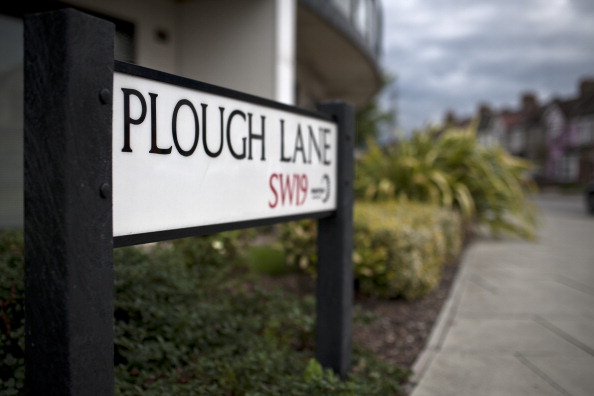Election 2019: ‘It was very personal, very hurtful,’ says Wimbledon’s Stephen Hammond

“I’ll be voting for you because you’re not like Boris, you’re not like those nutters,” says a softly-spoken man from within a rather grand house. “You’re rational and I want to keep the rational ones in.”
As endorsements go, it’s a mixed bag. But in Wimbledon — as in so many affluent, Remain-voting constituencies, it’s one that Conservative candidate Stephen Hammond is used to.
“It’s not untypical,” he shrugs, as we make our way up the street to knock on more grand houses.
Still, things could be a lot worse. Hammond was one of 21 Tories who had the whip removed when he voted to block a no-deal Brexit in September. He and the other members of the so-called Gaukeward Squad were left dangling for many weeks until a select few were welcomed back into the fold, just as MPs voted to go to the polls.
Unlike colleagues such as David Gauke and Dominic Grieve, Hammond was restored to the party, giving himself a stronger chance of being returned to Westminster this week. But even with the Tory brand recognition, it’s a slog.
Anti-Brexit sentiment is still strong. Hammond estimates around 15 per cent of his constituents are “simply not persuadable” — although that figure has come down during the campaign, partly thanks to the Liberal Democrats’ policy of revoke, but also because of wider questions about where any alternatives leave the country.
To those who are persuadable, Hammond says: “I voted Remain, I campaigned for Remain, I said I would do everything I could to stop a hard Brexit — and my record shows that’s what I’ve done. But the best way to stop a no-deal is to have some form of deal, and this country needs to start talking about the future. The big opportunity is what we can do next, with the free trade arrangement.”
Hammond is very much looking to the future. One of his aims if he is elected this week is to go back on the Treasury Select Committee, having stood down before taking a ministerial role under Theresa May. Indeed, this summer he started campaigning to be the committee chair replacing Nicky Morgan, but was disqualified after he lost the whip.
While some have worn their sacking as a badge of honour, it was clearly a low point for Hammond.
“It was very personal, and very hurtful at the time,” he tells me in one of Wimbledon’s pubs after a two-hour session of door-knocking.
“If I’m asked about it on the door I say ‘I deeply regret what happened, I wish it hadn’t been the way I got treated, that a lot of my colleagues think it was a huge overreaction’. But I’ve been a Conservative member ever since I left university… Part of being a member of a party or a family is that you have to forgive things and move on in life. I could have become obsessed with self-pity and got really angry — but actually, there are other battles I want to have.”
One of those battles will be the next phase of Brexit talks, and the kind of future relationship the UK has with the EU. Hammond is a definite Europhile, but believes a happy medium can be reached in trade deals with the US, EU and other territories. He also wants to “protect” what EU citizens in his seat currently enjoy, from citizens’ rights to partnerships in science and education.
Leaving aside the huge national issues, Wimbledon has more than enough local issues for a constituency MP to get his or her teeth into. Heathrow is still up in the air — pun intended — and another issue Hammond will continue to fight.
At the start of the morning Hammond reminded his sizeable campaign team — which include former MPs Nick Hurd and Sir Francis Maude — that the potential closure of Wimbledon’s police station, and the possible creation of a new hospital were the messages to hammer home.
And if in doubt, the message that is being delivered on the doorsteps of all Remain-leaning households toying with a Lib Dem vote.
“It’s a binary choice: it’ll either be Mr Corbyn or Mr Johnson in Number 10 and however much they dislike Brexit, the prospect of what Corbyn will do to this country is a major concern — for a lot of them, it’s probably a bigger concern than the slightly false choice that the Lib Dems offer,” Hammond says.
And yet there is still a seam, particularly within the wealthier addresses, of people who are “stubbornly Remain” and for whom Johnson’s brand of populism is beyond the pale just as much as the Labour leader’s.
This is another reason why Hammond says it is important for people like him to stick to the Conservatives.
“I want to make sure that people like myself remain the traditional voice of the Conservative party,” he says. “I don’t want the Conservative party to become a right-wing sect.”
Ever the optimist, Hammond says he’s confident that Johnson will become “more socially liberal after Brexit”. Assuming, of course, that he gets the chance.
Image credit: Getty